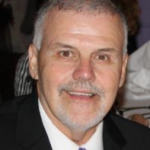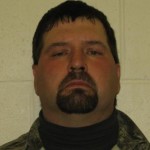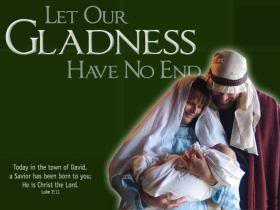I switched the television off shortly before 1 a.m. Wednesday morning and dozed off to sleep with a good feeling – a feeling that I had witnessed a real life miracle.

I turned my computer on five hours later and quickly felt like I had experienced a bad dream that included a swift kick in the stomach.
That contrasting change of emotions during that short time span was caused by the heartbreaking reversal that 12 of 13 West Virginia coal miners were in fact dead, after it was widely announced only hours earlier that all but one miner had survived. As I tried to absorb and comprehend what I was reading I realized that in this life it really is possible for grief to be heaped on top of grief.
Like many Americans the race to rescue the trapped coal miners has had a lock on my attention since Monday morning when it was first announced that an explosion had taken place at the Sago Mine, in Tallmansville, West Virginia.
And it was with a unique perspective that I followed this story.
As a reporter, I understood the tough questions that had to be asked of company officials and state and federal officials whose job it is to make sure the mine is safe. I also understood the need to attach a personal element to the story and tell about the miners’ lives, families and mining experience.
But it was from another angle that this gripping tragedy grabbed hold of me and would not turn loose. Even for a guy that earns a living these days stringing words together it’s hard for me to explain. As I listened to the words of the mining families and hoped and prayed with others for a miracle I had this overwhelming feeling that there was a story I had to tell.
You see, as I watched the non-stop coverage I realized that I know these people and the lives that these now-grieving families live. I know their lifestyle, their desires, their tenacity, their faith, their endurance, their ingenuity and their fears. I’ve never met them, but I know them.
I know about riding a ‘cage’ 600-feet into the ground and about the feel and smell of the damp, dark recesses of a coal mine. I know about swing-shifts, rock falls and about trading the ability to breathe fresh air for a paycheck. I know what it feels like to change clothes next to a fellow miner at midnight and laugh and talk with him only to learn that he was killed in a rock fall three hours later. I know about the eerily quiet, subdued feelings that are present when miners return to work on the shift following a fatality. I know what it feels like to work in the exact same section of a mine where only hours before a young life had been snuffed out.
I also know what it’s like to hide my fears and to hope against hope, even if it’s only a fleeting hope.
As I watched the accounts of the tragedy that focused on news and coal mining I realized that occupation-wise I’ve lived two lives. I spent 20 years as a coal miner that nobody knew and the past 13 years as a reporter and columnist that a lot of people know.
To many, it might seem logical to embrace my current job status and visibility and to shun my previous life as an underground coal miner. But, that will never happen because that’s where I came from, that my roots.
The people that have filled our television screens during the past few days, just like the people I worked with every day for two decades are, as my mother used to say, ‘the salt of the earth.’ These people are hard-working, faithful, loyal, outspoken and certainly not afraid to stand up for what they believe. As I watched the tragedy unfold in West Virginia I was reminded once again that I am who I am today not because of something I learned in a classroom but because of my previous ‘life’ and because I ‘know’ these people.
In the coming weeks the Sago Mine will reopen and miners will grab their dinner buckets and trudge off again into the bowels of the earth to mine coal. Because, as a relative of one of the deceased miners stated, ‘it’s a way of life, it’s all we know.’
Now is not the time to talk about what caused the explosion, wrongful death lawsuits or miscommunication. Now is not the time to talk about federal and state violations. Now is not the time to point fingers.
Now is the time to bury the dead and to grieve for more lost lives in the coal industry.
I know how that feels, too.


